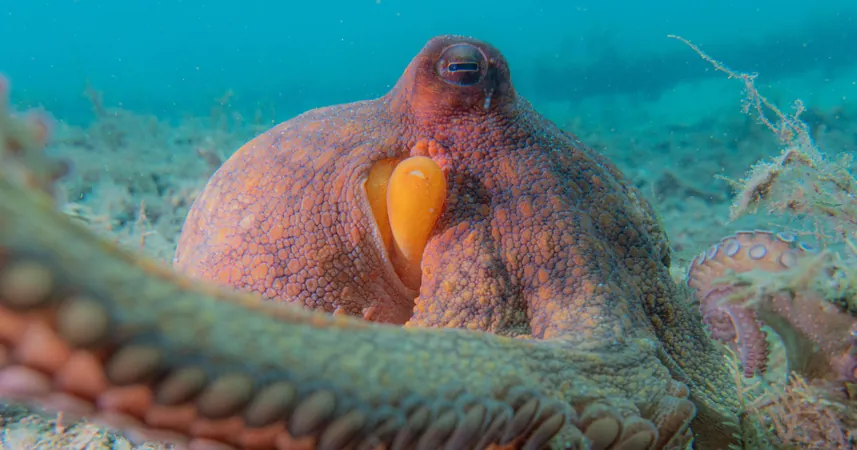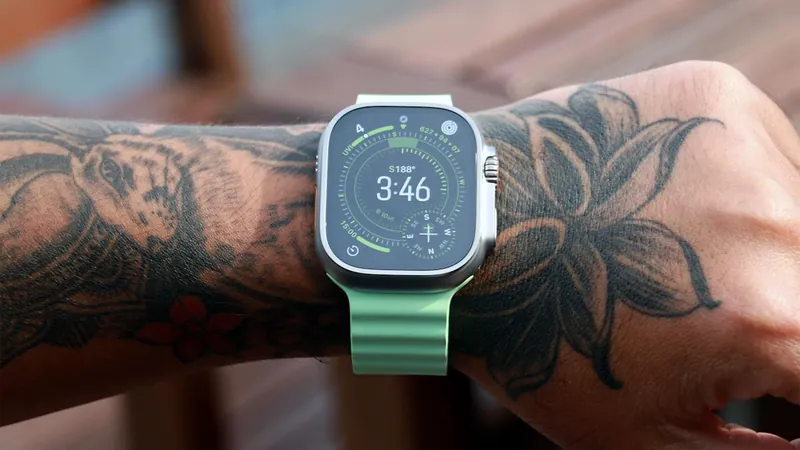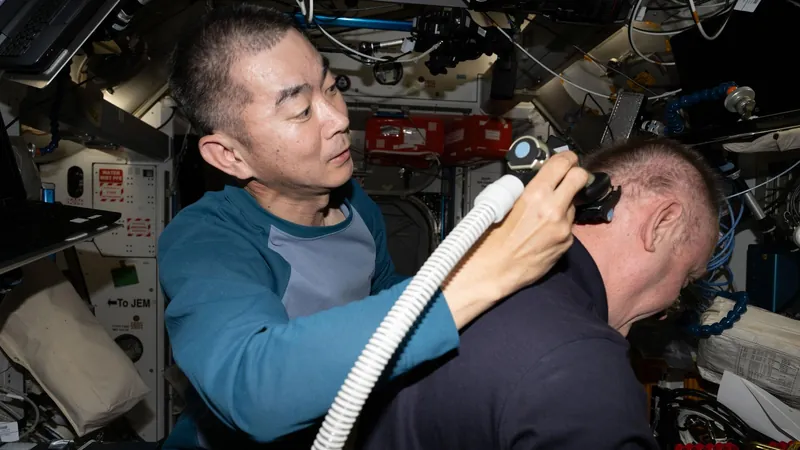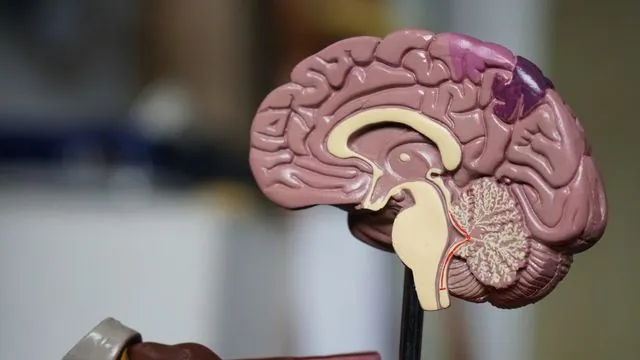
Octopuses: The Ocean's Incredible Multitaskers Revealed!
2025-09-14
Author: Daniel
Unraveling the Secrets of Octopus Multitasking
Prepare to be astounded! New research has unveiled that octopuses are not just masters of disguise but also remarkable multitaskers, capable of using any of their eight limbs to perform a variety of tasks like reaching, tiptoeing, or grasping!
According to Kendra Buresch, a research biologist at the Marine Biological Laboratory, these fascinating creatures can execute multiple actions simultaneously on one arm and across several arms. Unlike many animals that rely on specialized body parts, octopuses have evolved to use any limb for nearly any situation.
A Deep Dive into Movement Analysis
These groundbreaking findings were published in the journal Scientific Reports, shedding light on how octopuses coordinate some of the most intricate movements found in the animal kingdom. The implications of this research could pave the way for understanding the evolution of their complex motor skills.
Moreover, this new knowledge could inspire the creation of advanced robots for medical uses or in exploring hard-to-reach areas, as octopuses continue to be a source of inspiration for engineers developing soft robotics.
Inside the Octopus's Fluid Dynamics
The researchers discovered that each octopus arm can perform a wide array of motions, favoring their front limbs (60%) for exploration while their back limbs assist in movement. Interestingly, octopuses showed no distinct preference between their left and right arms.
To unveil the secrets behind their movements, scientists from Florida Atlantic University and the Marine Biological Laboratory meticulously reviewed hours of footage of wild octopuses captured on five different continents from 2007 to 2015. The video analysis was so detailed that each minute took hours to dissect, resulting in a comprehensive catalog of 3,907 distinct arm actions.
Neuroscience of the Octopus: A Bizarre Brain
Octopuses possess a uniquely complicated nervous system—one that leaves scientists intrigued. Interestingly, these cephalopods have more neurons in their arms than in their central brain, allowing them not only to move but also to taste their surroundings through specialized suckers.
Imagine an octopus skillfully maneuvering its arms across seafloor surfaces, exploring crevices, and effectively 'tasting' its environment! Buresch notes that understanding how this decentralized nervous system functions is like piecing together a complex puzzle, offering new avenues in neurological research.
The Future of Research and Robotics
This remarkable study is just the tip of the iceberg. As we continue to learn about the extraordinary capabilities of octopuses, who knows what innovations in robotics and neuroscience await us? One thing is clear: these incredible marine creatures are not just surviving; they're thriving in their own multitasking way!




 Brasil (PT)
Brasil (PT)
 Canada (EN)
Canada (EN)
 Chile (ES)
Chile (ES)
 Česko (CS)
Česko (CS)
 대한민국 (KO)
대한민국 (KO)
 España (ES)
España (ES)
 France (FR)
France (FR)
 Hong Kong (EN)
Hong Kong (EN)
 Italia (IT)
Italia (IT)
 日本 (JA)
日本 (JA)
 Magyarország (HU)
Magyarország (HU)
 Norge (NO)
Norge (NO)
 Polska (PL)
Polska (PL)
 Schweiz (DE)
Schweiz (DE)
 Singapore (EN)
Singapore (EN)
 Sverige (SV)
Sverige (SV)
 Suomi (FI)
Suomi (FI)
 Türkiye (TR)
Türkiye (TR)
 الإمارات العربية المتحدة (AR)
الإمارات العربية المتحدة (AR)